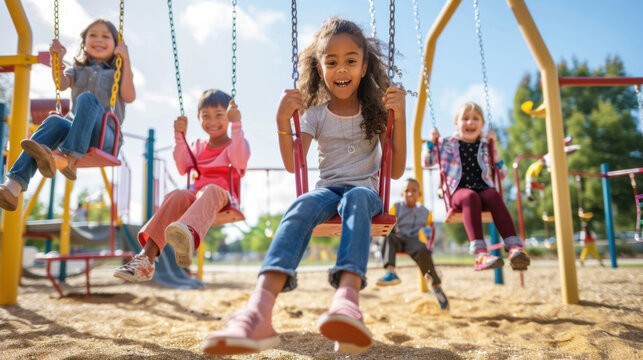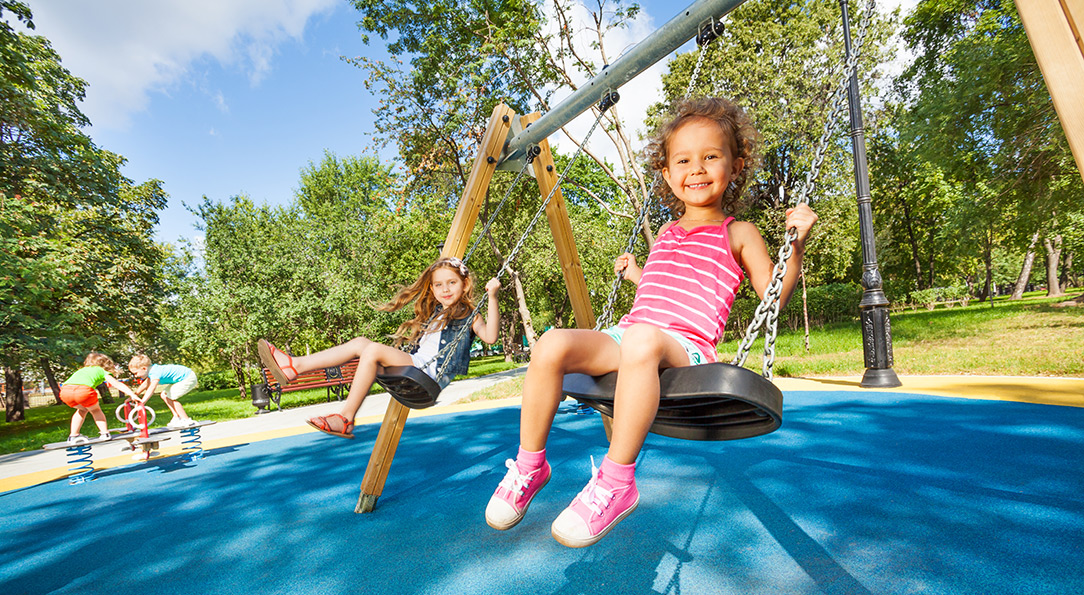Play, movement, and discovery are all part of childhood. Early childhood activities have a significant impact on children’s development, both emotionally and physically. Outdoor swings have a distinct position among the various accessible traditional toys and play structures. Swings have long been a part of childhood, whether they are installed in a park, garden, or playground. Outdoor kids swing are great for encouraging healthy children’s development in addition to the joy and laughter they provide. Interestingly, their advantages match other contemporary play alternatives, like the electric toy car for kids, which also encourages independence and confidence. When combined, these toys aid in building a solid foundation for development.
Benefits Of Swing Play On The Body
Swinging is a full-body action and not simply a hobby. Children develop stronger arm, leg, and core muscles as they pump their legs to get momentum. This repeated motion improves coordination and endurance. As children learn how to maintain their body’s upright position while swinging, the back-and-forth action also helps with balance.
Swinging also enhances motor planning abilities. Children practice timing and rhythm every time they kick forward or draw back. These abilities gradually develop body awareness and athletic ability, preparing the body for future physical pursuits, including team sports, riding, and climbing.
Improving The Integration Of Sensors
Swinging outside is great for developing the senses. The motion stimulates the vestibular system, which regulates balance and spatial orientation. As a result, children benefit from improved posture, coordination, and spatial awareness.
Swings may be soothing for kids who might have trouble digesting sensory information. The soft, regular movement may help kids control their emotions, lessen anxiety, and calm overstimulation. Swings are thus beneficial for both leisure and therapy.
Social And Emotional Development
There are more benefits to swinging than just the physical sensation. Swings outside promote social connection and emotional fortitude. Children demonstrate empathy and cooperation when they support one another, take turns, and encourage their pals. While encouraging others fosters social ties, patiently waiting for a swing teaches self-control.
When kids learn to swing on their own, they experience a priceless feeling of success. This increase in self-assurance helps individuals develop a good view of themselves and motivates them to take on new tasks in other spheres of their lives.

Promoting Playtime Outside
Swings help refocus children’s energies toward outside play in a world where devices vie for their attention. Movement, sunshine, and fresh air all improve health. Engaging in outdoor activities promotes better mood, healthier sleep habits, and stronger immune systems. Children are more likely to spend more time outside when swings are present, mixing creative play with physical exercise.
Parents may improve these experiences by establishing a backyard play area that blends conventional alternatives like swings with contemporary toys such as a sandbox, slides, or even an electric toy car for kids. These diverse activities, which touch on many facets of early development, guarantee that playtime stays engaging and well-rounded.
Developing Creativity And Imagination
Additionally, swings promote imaginative play. A youngster on a swing could dream about flying an aircraft, soaring like a superhero, or visiting distant locations. These creative situations aid in children’s problem-solving skills development and cognitive stimulation.
Playing together on swings encourages role-playing and storytelling, enabling children to create experiences together. In addition to being enjoyable, this kind of creative involvement fosters teamwork, critical thinking, and language development.
Long-Term Effects On Development
Swinging has advantages beyond young children. Early development of strength, balance, and coordination prepares kids for lifetime healthy behaviours. Swings’ contagious delight and relaxation also help kids connect exercise to enjoyment, which motivates them to continue being active as they become older.
Swings are also inclusive since they may be modified for kids of all ages and skill levels. More children will be able to play outside because of this inclusion, which fosters equality and a feeling of belonging in social situations.
Conclusion
Outdoor kids’ swings are more than ordinary playground equipment; they are tremendous instruments for physical, emotional, and social development. Swings help children have happier, healthier childhoods by fostering creative play, motor skills, and sensory integration. They give kids the bravery to explore their surroundings, promote friendships, and stimulate outdoor play.
Swings are a part of a well-rounded play experience that fosters independence, creativity, and resilience when paired with other engaging toys, like an electric toy car for kids. Few presents are as classic and influential for parents wishing to support their child’s growth as the straightforward delight of an outdoor swing.



